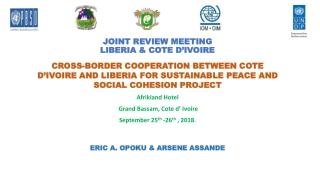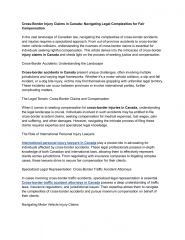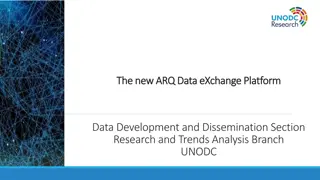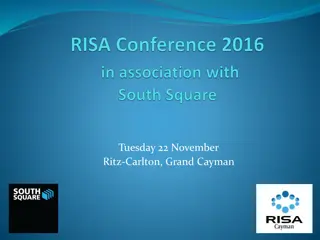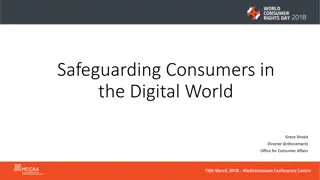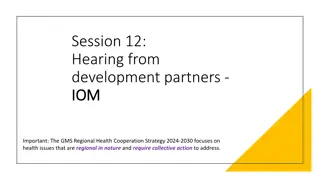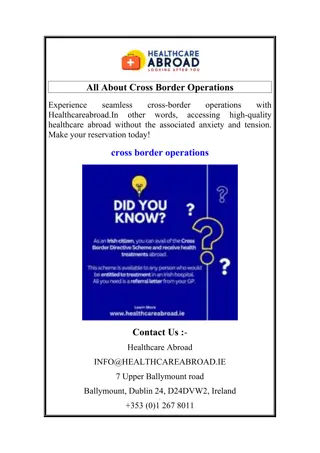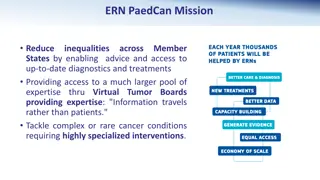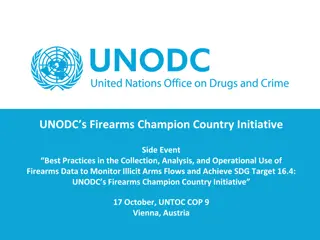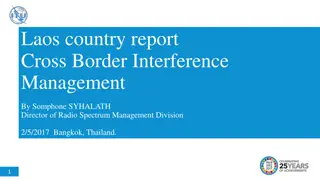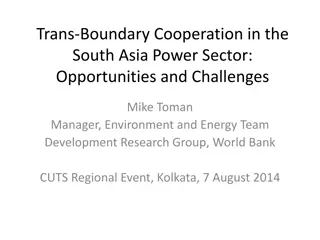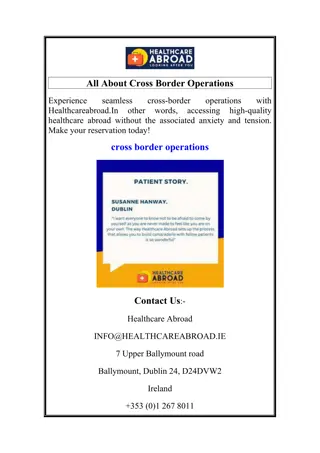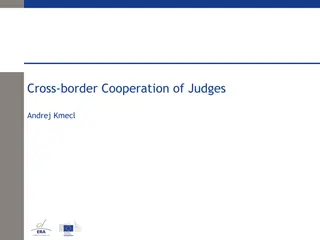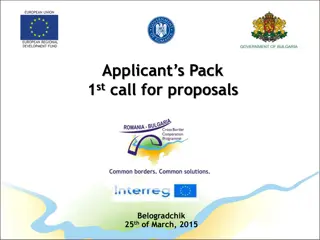Enhancing Border Protection and Cross-Border Cooperation Strategies by UNODC
The United Nations Office on Drugs and Crime (UNODC) works to address border protection challenges through intelligence-led approaches, training, and equipment support. This includes fostering cross-border cooperation, establishing border liaison offices, implementing risk assessment programs like AIRCOP, and launching initiatives such as the Container Control Programme. Emphasis is placed on promoting regional networks and structures for information sharing, collaboration, and trust-building among law enforcement agencies and relevant authorities.
Download Presentation

Please find below an Image/Link to download the presentation.
The content on the website is provided AS IS for your information and personal use only. It may not be sold, licensed, or shared on other websites without obtaining consent from the author. Download presentation by click this link. If you encounter any issues during the download, it is possible that the publisher has removed the file from their server.
E N D
Presentation Transcript
UNODC response to support border protection issues and cross-border cooperation
NEED to KNOW In many instances there is no possibility to physically protect the borders because of terrain, length (thousands of km), lack of human resources, etc.; Cross border issues and border protection are not limited to the physical border itself; Not limited to one country as border always have other side (not vacuum); It is a part of the wider cooperation both at national and regional level.
Helping the countries to develop their capacities To use intelligence led approach Working across the borders Training Equipment To conduct operations special investigative techniques for instance, controlled deliveries
Border liaison offices Country A Country B Exchange of information; Daily cooperation; Focal point; Relevant agencies involved; Police Police Customs Customs Border Guards Border Guards S.E.Asia and C.Asia Others Others
AIRCOP Risk assessment; Profiling of passengers; Building operational links between the countries and their airports (law enforcement) Developing this approach as part of a bigger law enforcement; AFRICA and LATIN AMERICA
Container Control Programme Addressing cross-border container shipments through: Sea ports Dry ports Air ports (cargo) More details will follow.
Why Networks? - Promote/strengthen regional as well as national responses - Provide platforms and support for the exchange of information re: focal points, legal systems, procedures, & good practices Coordination Information sharing Networks Trust - Establish contacts and build trust that facilitates information sharing and cooperation related to ongoing investigations/prosecutions Collaboration
Promoting regional structures to support cross border and regional cooperation Prosecutorial and Central Authorities Law Enforcement Financial Intelligence
Prosecutorial and Central Authorities REFCO, WACAP, Central Asia, East Africa, Gulf States Focal points, Regular meetings Cooperation in criminal matters MLA and Extradition
Law Enforcement Ensuring exchange of criminal intelligence; Coordinating multilateral operations; Serving as a platform for operational initiatives for instance meetings of the case officers investigating real cases Joint Planning Cell Afghanistan, Iran, Pakistan Gulf Criminal Intelligence Centre to Combat Drugs (GCIC) - Bahrain, Kuwait, Oman, Qatar, Saudi Arabia & UAE CARICC Azerbaijan, Kazakhstan, Kyrgyzstan, Russia, Tajikistan, Turkmenistan, Uzbekistan; Others 10
Networking the Networks APICC Europol WCO CARICC SELEC Interpol JPC GCIC 11
THANK YOU FOR YOUR ATTENTION (to be followed by CCP presentation) Tofik Murshudlu Chief ISS/OCB/DTA


